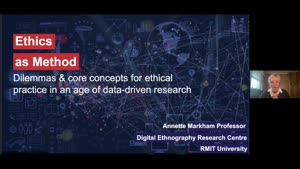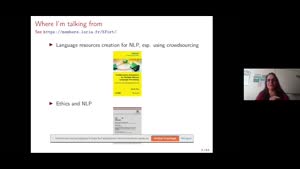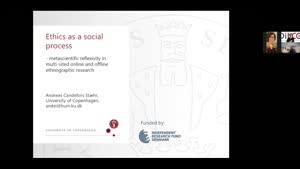Shared Stories and Social Media Influencers on TikTok : DiLCo Lecture Series 2022 (08 April) - Ruth Page - University of Hamburg
- Lecture2Go
- Catalog
- F.5 - Geisteswissenschaften
- Sprache, Literatur, Medien (SLM I + II)
- Digital language variation in context (DiLCo)
Catalog
Shared Stories and Social Media Influencers on TikTok : DiLCo Lecture Series 2022 (08 April)
In this lecture I will show how the shared stories told by influencers on TikTok are used to perform authenticity and manage audience engagement. Shared stories (Page, 2018) are characterised by distributed linearity, co-tellership, intertextuality and shared assumptions. In TikTok, these shared stories are told in short-form videos, which are shaped by the affordances, genres and community characteristics of the site. In particular, the shared stories are used to perform authenticity as part of the influencer’s relatability (Abidin, 2016, 2021) through their use of self disclosure, humour and back stage performances (Goffman, 1959) as a means of building rapport with their audiences. I will focus on the Smithy Family as a case study whose posts on TikTok between April-October 2021 demonstrate the risks and rewards of performing authenticity through shared stories. The data considered considers 250 videos posted to the main Smithy Family TikTok account and a corpus of 132,696 comments (1,197, 414 words) posted in response to those videos.
Ruth Page is a Reader at the University of Birmingham in the Department of English Language and Linguistics. She has written several books including Stories and Social Media (Routledge, 2012) and Narratives Online: Shared Stories and Social Media (Cambridge University Press, 2018). Her publications have explored narratives in a wide range of mediated contexts. She is also interested in multimodal discourse and is editor of New Perspectives on Narrative and Multimodality (Routledge, 2010); co-editor of Museum Thresholds: The Design and Media of Arrival (Routledge, 2018) and has published journal articles about selfie-taking from a discourse-analytic and pragmatic perspective.
DiLCo Lecture Series 2022 aims to showcase cutting edge international research on digitally language and communication by both senior and younger researchers from across the world. We wish to present research that explores digital language and communication by drawing on key concepts and topics in socio-cultural linguistics, such as community, context, identity, mediated interaction, multimodality, and linguistic change. We particularly welcome presentations of innovative methods that cut across traditional disciplinary boundaries.
DiLCo (Digital language variation in context) is a 3-year international research network initiated in 2021 at the University of Hamburg. The network brings together researchers from Europe and USA with expertise in computational, interactional, and ethnographic approaches to digital language and linguistics. It aims to provide a platform for the development of interdisciplinary ideas in digital language and communication research, and for early-career capacity building.
---
DiLCo (‘Digital language variation in context’) is a 3-year international research network initiated in 2021 at the University of Hamburg. The network brings together researchers from Europe and USA with expertise in computational, interactional, and ethnographic approaches to digital language and linguistics. It aims to provide a platform for the development of interdisciplinary ideas in digital language and communication research, and for early-career capacity building.
-
 00:00:00Introduction
00:00:00Introduction -
 00:04:00Lecture (Ruth Page)
00:04:00Lecture (Ruth Page) -
 00:41:53Discussion
00:41:53Discussion

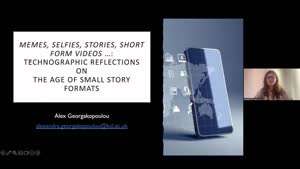
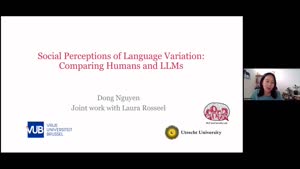
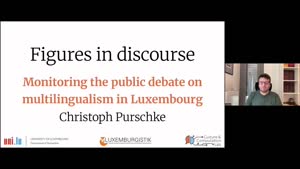
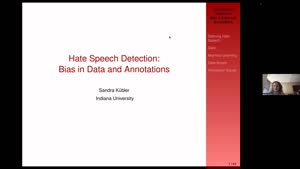
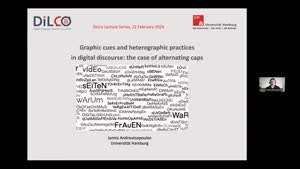
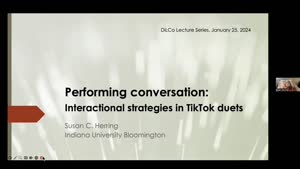
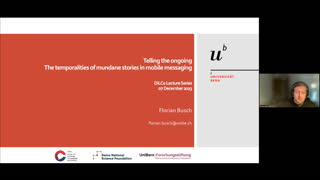
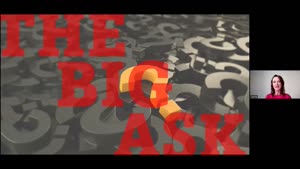
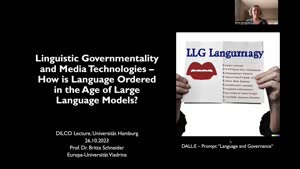
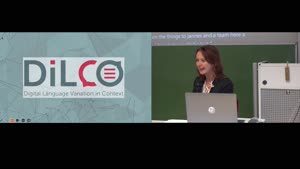
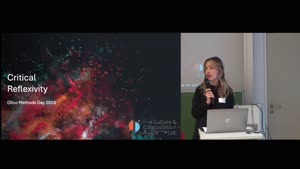
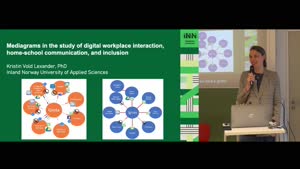
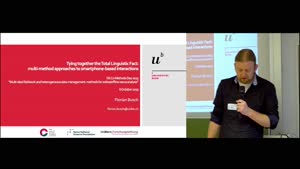
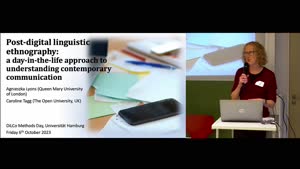
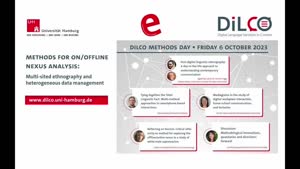
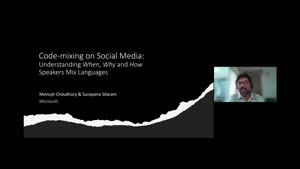
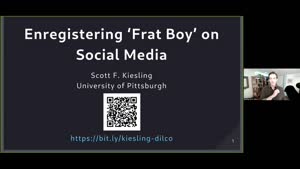
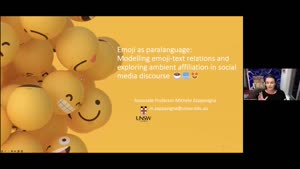
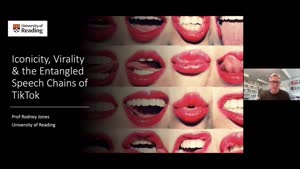
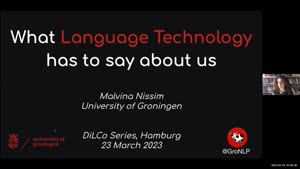
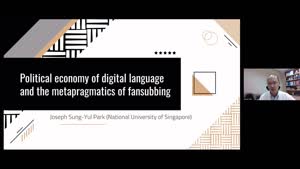
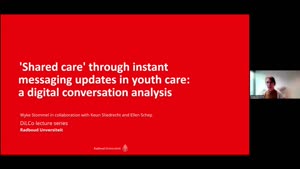
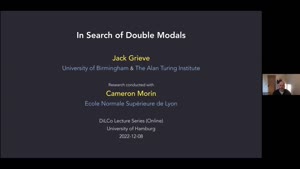
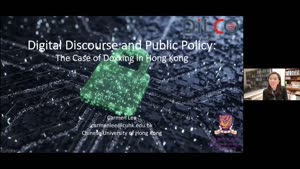
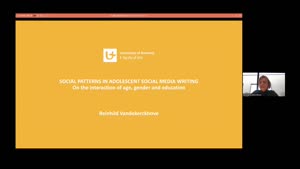
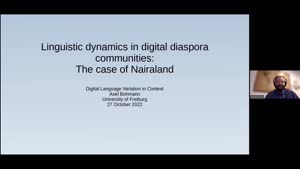
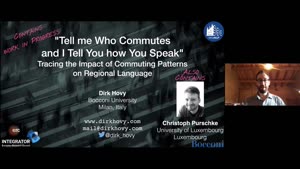
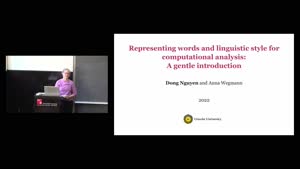
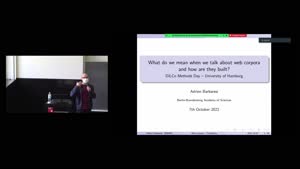
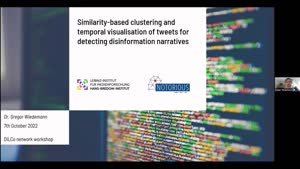
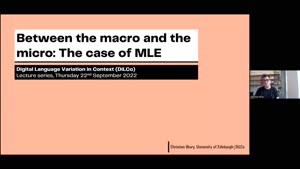
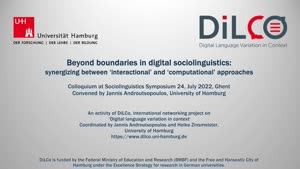
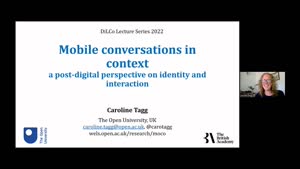
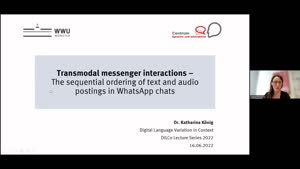
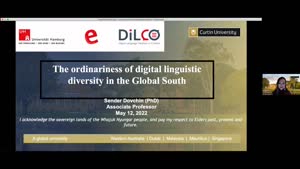
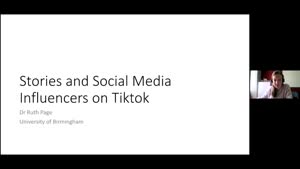
![Thumbnail - Graphic Prosody and political discourse on Greek Reddit [Presentation in Greek]](https://lecture2go.uni-hamburg.de/images/00.000_video-61074_2022-03-30_18-30_m.jpg?lastmodified=1663761108652)
